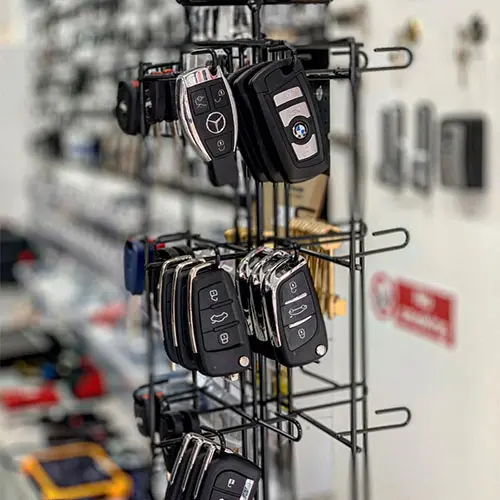car-key-locksmith-services3483
car-key-locksmith-services3483
What’s The Job Market For Vehicle Lock Repairs Professionals?
Vehicle Lock Repairs: Ensuring Safety and Security
In a world where vehicle theft and break-ins prevail, making sure that a vehicle’s locking mechanism is operating efficiently is important for both safety and security. Vehicle lock repairs incorporate a series of repairs and upkeep procedures that deal with concerns associated to locks and ignition systems. This post provides a summary of the types of vehicle lock issues, signs of breakdown, repair choices, and preventative procedures while also addressing some often asked concerns.

Understanding Vehicle Lock Mechanisms
Vehicle locks use numerous mechanisms that differ among makes and designs. The main parts of a vehicle lock system normally include:

- Key Cylinder: The part where the key is inserted.
- Locking Bolt: Engages and protects the door when locked.
- Latch Assembly: Holds the door closed but can be disengaged when unlocking.
- Ignition Lock: Secures the ignition system of the vehicle.
Each of these elements can be vulnerable to wear and tear or unexpected failure, leading to lock-related concerns.
| Part | Description | Common Issues |
|---|---|---|
| Key Cylinder | Accepts the key to operate the lock | Key jams, problem turning the key |
| Locking Bolt | System that protects the door when locked | Bolt misalignment, stuck bolt |
| Latch Assembly | Engages and disengages to protect the door | Broken latch, incorrect function |
| Ignition Lock | Secures the ignition to start the vehicle | Key will not turn, ignition failure |
Signs of Lock Malfunction
Vehicle owners ought to be watchful for indications that their lock systems might be failing. Some typical signs of lock concerns consist of:
- Difficulty Inserting Key: If the key does not easily fit into the cylinder, there may be debris inside or use taking place within the cylinder.
- Stuck Key: A key that gets stuck while turning can suggest internal damage or misalignment.
- Locked Door Will Not Unlock: If a door refuses to unlock, it might be due to a malfunctioning locking bolt or lock.
- Unusual Noises: Grinding or clicking sounds while attempting to lock or unlock the door can suggest structural issues in the locking mechanism.
- Faulty Remote: If the key fob is not reacting, the issue might lie not only with the fob’s battery however could also point towards problems in the lock receiver in the vehicle.
Fixing Vehicle Locks
Handling a vehicle lock problem can be intricate, and while some repairs can be tackled in the house, others may need expert support.
DIY Repairs
Some minor lock concerns can be fixed without the aid of a mechanic. Here are a few examples:
- Lubrication: Regularly use a silicone-based lube to key cylinders and locks to avoid sticking.
- Clean the Key: Dirt on the key can cause jamming in the key cylinder. Tidy keys with rubbing alcohol to eliminate dirt or residue.
- Check the Battery in the Remote: For remote key fobs, verify that the battery is functional by evaluating it with another vehicle or having it replaced.
Expert Repairs
For more considerable concerns, professional repairs might be essential. Common expert services include:
- Key Replacement: If the key is lost or damaged, a locksmith can develop a brand-new key or rekey the lock.
- Reprogramming Key Fobs: Sometimes the remote requirements to be reprogrammed to sync with the vehicle’s receiver.
- Comprehensive Lock Replacement: In extreme cases, whole locking systems may require replacement due to harm or wear.
Preventative Measures
To extend the lifespan of vehicle locks and prevent problems, think about the following preventative procedures:
- Regular Maintenance: Periodic evaluation and lubrication of locks can avoid future breakdowns.
- Prevent Excessive Force: Handling keys and doors gently can lower endure locking systems.
- Immediately Address Issues: If problems occur, addressing them quickly can prevent more damage and more expensive repairs.
Frequently Asked Questions
Q: How do I understand if my vehicle lock needs repair?A: Look for signs such as problem placing the key, unusual noises, or the door failing to lock or unlock. Q: Can I repair a stuck lock myself?A: Simple issues such as lubrication may
be solved at home; nevertheless, intricate problems usually require specialists. Q: How much does it cost to repair a vehicle lock?A: Costs can differ widely based on the problem and vehicle type. Standard repairs may start around ₤ 50, whereas lock replacements can cost several hundred dollars. Q: What need to I do if I lose my car key?A: Contact a locksmith or your car dealership for a replacement key. They may need your vehicle recognition number (VIN )to produce a brand-new key. Q: Are aftermarket keys as trusted as original keys?A: Aftermarket keys can be less reliable than OEM keys, as they may not comply with the same specifications and quality requirements.
Preserving the stability of a vehicle’s lock system is
critical for overall security and safety. By acknowledging the indications of a malfunction, conducting proper repairs, and carrying out preventative procedures, vehicle owners can avoid the hassle and possible risks connected with lock problems. Guaranteeing that locks work properly enhances not just the vehicle’s safety but likewise the comfort of its owner.


